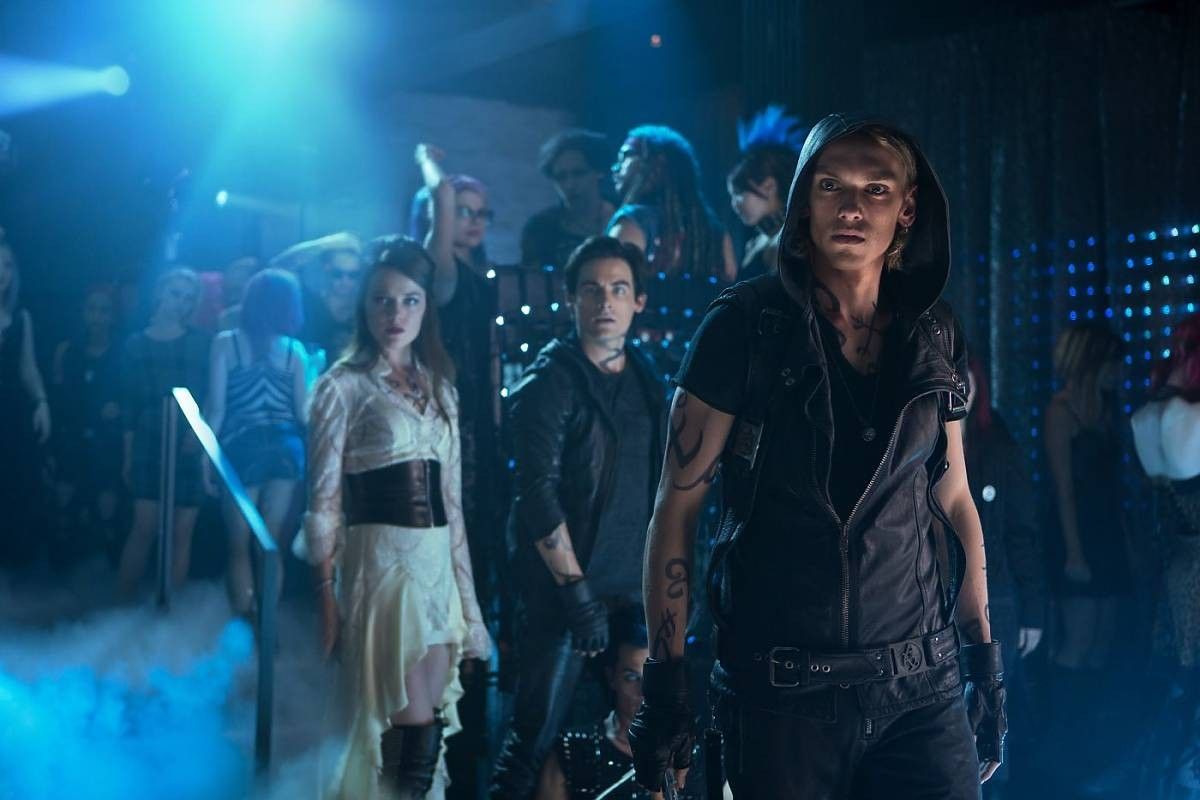“Better than any of the Twilight movies” feels like damning an adaptation of a young-adult novel with faint praised , but The Mortal Instruments: City of Bones is that, even if it’s unlikely to change non-fans’ attitudes about squee-worthy fantasy tales of desperate teenage girls and the gorgeous, brooding young men they love.
Remarkably thoughtful about its female lead and sophisticated in its attitudes about sexuality in general, the first film in a series based on Cassandra Clare’s novels finds a solid midpoint between the romantic longing of the Twilight franchise and the flexed-muscle girl power of The Hunger Games, offering viewers a character who’s sympathetic but never pathetic, resilient without being invulnerable. At the same time paired with yet another overcomplicated mythology, The Mortal Instruments: City of Bones is a passable new entry in the expanding subgenre of young-adult adaptations that should earn little attention from newcomers to the series, even if it might satisfy fans of the source material.
Lily Collins (Mirror Mirror) plays Clary, a New York teenager who discovers she is a key player in an age-old conflict between warring factions of a hidden supernatural world. After learning she is descended from a long line of “Shadowhunters,” Clary teams with ace Hunter Jace (Jamie Campbell Bower) to learn the ropes and locate her mother Jocelyn (Lena Headey), who has disappeared. Despite the objections of Jace’s partner Alec (Kevin Zegers), Clary soon finds herself fighting alongside them against vampires, werewolves and other mysterious creatures. But after learning that an excommunicated Shadowhunter named Valentine (Jonathan Rhys Meyers) is searching for a magical cup her mother was tasked to protect, Clary races to find the cup for herself in the hopes of rescuing her mom and stopping a full-scale invasion of the “mundane” world by evil forces.
Perhaps unsurprisingly, the mythology of the film is about 10 times more complicated than described in the above synopsis, but you can discover its intricacies for yourself. But like in virtually all of these adaptations, it seems like half of the dialogue serves only to provide expository information to the audience as opposed to, say, telling the story. Regardless, I suspect I’m not the only person who’s tired of watching authors combine the same supernatural elements – vampires, werewolves, magic that’s somehow disguised by everyday behaviors and, of course, lots of leather costumes – and then finding an unassuming, naive protagonist to introduce all of that to via a bland, mostly unoriginal hero’s journey.
That said, Mortal Instruments does at least feature a female character in Clary who is more complex than a lot of the others audiences have seen. Played with conviction and sincerity by Collins, Clary is a novice in the world of supernatural battles, but even if she occasionally needs the help of her hunky counterpart Jace, she’s seldom a damsel in distress. In a dichotomy of female roles that seems to divide evenly between ass-kickers and girlfriends or sidekicks, Clary is her own person – self-assured, modest but not asexual, but most importantly, an agent of her own fate, even if understanding it may come out of the mouths of the males around her. Notwithstanding the Shadowhunters’ pursuit of the cup, her goal is rescuing her mother at all costs, and the incidental nature of her budding romance with Jace gives her a depth and gravitas that quite frankly most female characters, young adult or no, lack. And even though she eventually gets subjected to a sexy makeover when getting introduced to the world of the Shadow Hunters, at least she and the film have the self-awareness to acknowledge the silliness and impracticality of knee-high boots and miniskirts that stop at the crotch.
Moreover, director Harald Zwart doesn’t flinch when it comes to the pansexual entanglements of the characters, which will no doubt court controversy, but it probably more accurately reflects the nonchalant acceptance of non-hetero lifestyles by teenagers – the people who are most likely to see this film. Magnus Bane is certainly the most flamboyantly dressed character, first appearing in boxer briefs and a robe, but the character otherwise avoids most unflattering gay stereotypes, and focuses largely on what his purpose is in the story. Similarly, it turns out that not only is Alec gay, but has some kind of thing for Jace, but that the film takes his affection for his teammate seriously is a testament to the respect Zwart shows to all of his characters.
That said, the film features what could be cinema’s first love pentagon – between Clary, Jace, Alec and Simon (Robert Sheehan), Clary’s best guy friend – and the melodramatic escalation of those stakes are about as exciting as you can imagine, especially given the collective petulance of the male characters. As Jace, Campbell Bower exudes the right kind of brooding prettiness that one of these movies’ love interests needs, but he’s also petulant and whiny when confronted with competition for Clary’s affections – which, in this critic’s experience, seldom makes the object of one’s affection more endeared to you. But overall, the film’s entanglement of relationships feels soapy and melodramatic rather than intriguing and provocative, introducing shocking developments at random, which tends to reduce those real stakes in Clary’s journey to the stuff of, well, escapist teen fantasies.
Overall, the film seems like it will play well to its core audience, and no doubt draw in at least a few of the folks who discovered and enjoyed series like Twilight when they made the transition to the big screen. But then again, if these movies are supposed to resonate on a more universal level, Zwart’s adaptation succeeds only in capturing whatever essence originally appealed to readers, and introduces little or nothing of substance that would hook someone who wasn’t inclined to explore the material in the first place.
Unlike properties such as The Hunger Games or even something like The Lord of the Rings, which tapped into larger themes or at least stories, the action here is perfunctory, the romance utterly conventional, and the mythology complicated but hardly immersing. Ultimately, the final impact of its drama defines the difference between a bona fide tragedy and, like, a total bummer – which is what The Mortal Instruments qualifies as. Qualitatively, of course, that’s better than the alternative, but for anyone hoping to be truly moved, City of Bones is a poor location for something that truly gets your blood flowing.
The Mortal Instruments: City of Bones opens today.
Related: The Mortal Instruments Star Lily Collins on What Makes Her Character Different
Jamie Campbell Bower Talks Success, Harry Potter & The Mortal Instruments


